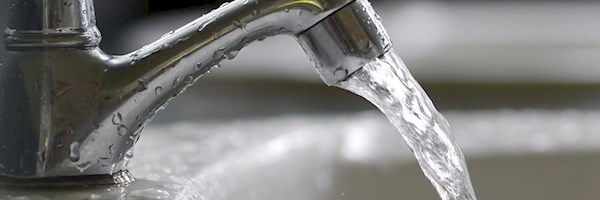Whether or not you own or rent your home, you’re paying twice for the water you’re using: first when it arrives at your house, and then again when you throw it down the drain. And then you’re paying again if you want to water your garden.
What if I told you that you could change all that?
The secret lies in knowing what water to discard, what to reuse, and how you use it.
What is grey water?
Water Rhapsody franchise holder Alje van Hoorn, of Cape Water Solutions, is an expert in the installation and management of grey water systems for domestic use – both for individual homes and for blocks of flats and other, similar communities.
Grey water systems, he said, collect water from showers, baths, hand basins, and laundries – but not from dishwashers or the kitchen sink – and redistribute it to the garden, where it can be used for irrigation, or to the toilet, where it’s reused for flushing.
Cost savings
And cost savings aren’t the only reasons why you should consider a grey water system for your home.
“At best 33% of water consumed in a home is normally thrown away, and at worst perhaps 50%. It’s preposterous that any municipality allows this precious source of good water to go to waste – especially in a water-poor country such as ours.
“If everyone used grey water for irrigation, the municipal waste water treatment works would have to process as much as 50% less effluent,” said Alje.
Full of fertiliser
But not all your waste-water is suitable for your garden.
“Water that’s been used for cleaning up after cooking and eating contains too many fats, and the soaps that you use for washing up contain chemicals that you don’t want on your garden. But as long as you choose the right soaps for the washing machine (those that are phosphate-free), the water from bathing and the laundry contains a good mix of nitrogen, phosphates and potassium (NPK) – which are exactly the same chemicals that we find in fertilisers.
“So gardens – and especially lawns – really thrive when they’re irrigated with grey water.”
Pump, don’t flood
Alje said that simply flooding your garden with the water that comes out of your drains won’t do the trick: it’s best to pump it to the garden via hoses and sprinklers. (Grey water isn’t suitable for automatic irrigation systems.)
The grey water is fed through a filter to a pump chamber with a float switch, which automatically activates the pump when you start to shower – or pull the plug to empty your bath – and the level in the chamber begins to rise.
Rainfall
“While the average rainfall around the globe is 870 mm per annum, South Africa receives just 450 mm a year – which makes it the 30th driest country in the world,” said Alje.
“So while cost savings are the single biggest reason why homeowners choose to install grey water systems, the environmental reasons for installing them are really of importance to the entire country.”
Although Alje is based in Cape Town, Water Rhapsody (a WWF Green Trust award winner) has outlets around South Africa.
